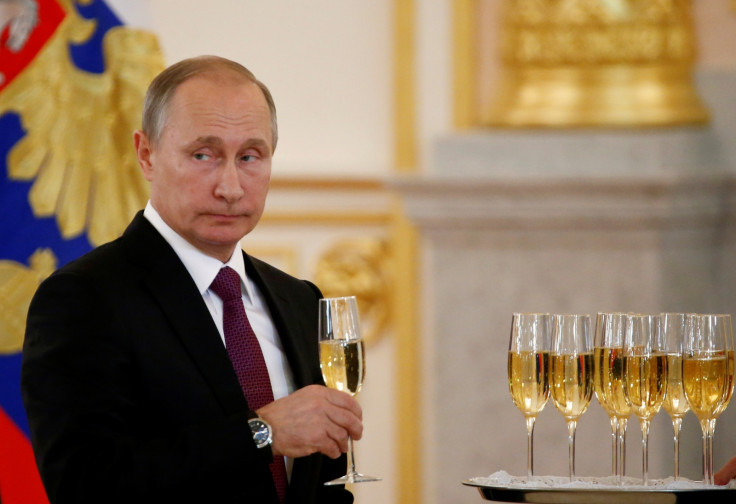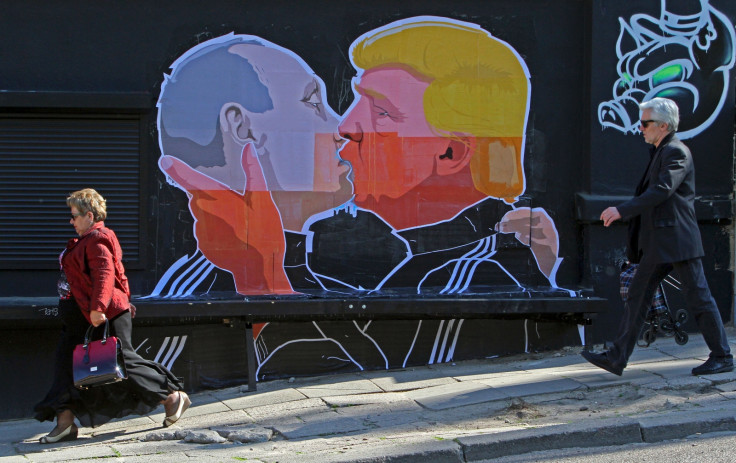Russia anticipates change in relationship with Washington after Donald Trump victory
Vladimir Putin congratulated Trump as speculation builds over what it means for US-Russian ties.

Russian deputies stood and applauded in their parliament on the morning after Donald Trump's triumph in the US presidential election.
How that result will affect the strained relationship between Moscow and Washington will be under scrutiny as the man whom Vladimir Putin appeared to support has won.
Putin's congratulatory telegram on the Kremlin website stated his hope for joint efforts to move Russian-American relations "out of a crisis situation" and to work together to "address the challenges of global security".
Associate fellow of the Russia Eurasia programme at the Chatham House think tank, Keir Giles, told IBTimes UK that although Putin had always favoured Trump, some of the reasons for doing so are not entirely unhelpful.
"The situation is similar to a change of regime in the Soviet Union in 1985 that led Margaret Thatcher to say: 'This is a person I can do business with', about Gorbachev.
"In other words, finding a way of achieving a real rather than fictitious reset of the relationship based on striking a grand bargain with Russia is now a realistic prospect.
"It also gives Russia the opportunity to tone down the rabid anti-American war rhetoric and instead seek a more cooperative relationship. The unfortunate irony is that all of this may make the world a safer place, but quite possibly at the expense of Europe," Giles said.
Former US ambassador to Moscow, Michael McFaul, tweeted his despair, apparently saying that Putin had interfered in the election, a message which was subsequently taken down.
However he did say that "Putin is the big winner tonight" and that "the biggest loser in the world tonight – Ukraine."
Biggest loser in the world tonight-- Ukraine. Your only hope is to get really serious about reform and keep Euros supportive.
— Michael McFaul (@McFaul) November 9, 2016
Of course Putin is also big winner tonight.
— Michael McFaul (@McFaul) November 9, 2016
Ukraine could indeed be at the frontline of Russia foreign policy as Moscow might look to make the most of the final three months of Obama's presidency.
Giles says this is because they must be concerned at the possibility that a Trump administration will not be "as much of a pushover as Obama has been. So the clock is ticking for them," he said.
The current serving US ambassador to Moscow, John Tefft, referred to Ukraine in an interview with the newspaper Kommersant, which he told it was too early to assess what US-Russia ties would be like under Trump.

"First of all, we must not forget that the Obama presidency still has three months to go...We will continue to support the 'Normandy format' (The group dealing with the Ukraine conflict).
"Also the Syrian problem is not going anywhere. Here, the solution requires dealing with a number of complex issues: from the situation in Aleppo to the political reconciliation process," he said.
The deputy secretary of the general council of Putin's ruling United Russia party, Sergei Zheleznyak, said he hoped the new US leader would help "build relations with Russia and peace based on respect for national interests", according to his party's website.
But not all Russian political figures greeted the news of a Trump presidency with enthusiasm.
The head of the Duma's committee for international affairs, Leonid Slutsky, told the Moska news agency: "He (Trump) said that there needs to be a rebuilding of ties with Russia. History is full of examples of pre-election rhetoric by the winning candidate has turned into disruptive policies towards Russia.
"It is possible that Trump was just playing up to different parts of the electorate which did not agree with the harsh rhetoric of Mrs Clinton," he said.
© Copyright IBTimes 2024. All rights reserved.






